| CE10 | CE10 | M. cardinalis | wild-type | Reference strain with genome sequenced | 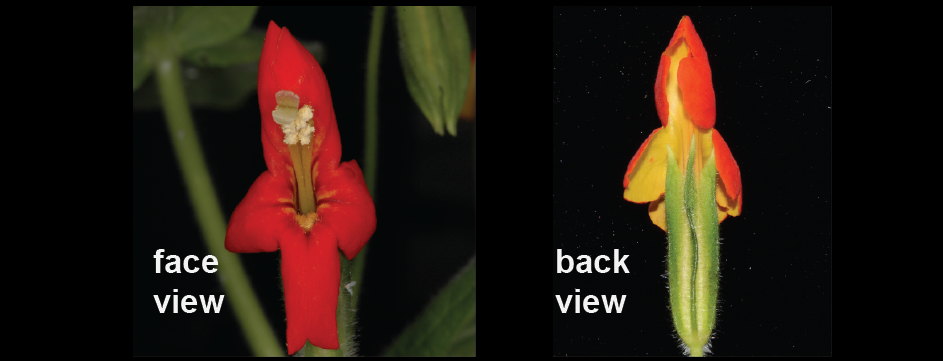 |
| LF10 | LF10 | M. lewisii | wild-type | wild-type (reference strain with genome sequenced) | 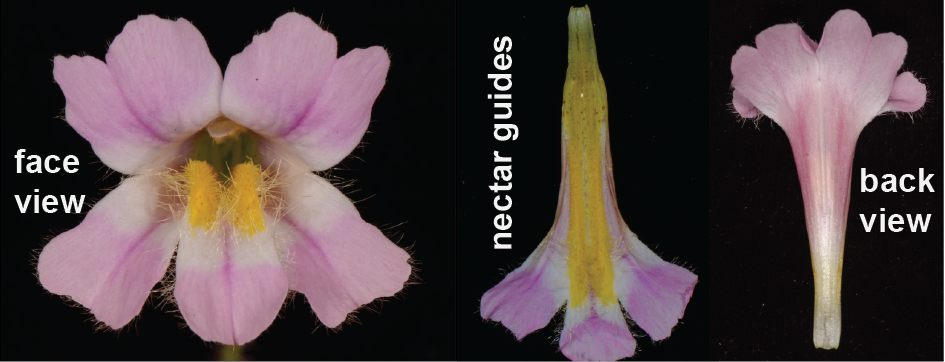 |
| LF10-lar1 | LF10-lar1 | M. lewisii | flower, Anthocyanin pigmentation | A near-isogenic line (NIL) in the LF10 background, with the LAR1 locus substituted by the M. cardinalis CE10 version. LAR1 encodes a subgroup-7 R2R3-MYB that activates flavonol biosynthesis.
Reference: Yuan et al. 2016. PNAS 113: 2448–2453. | 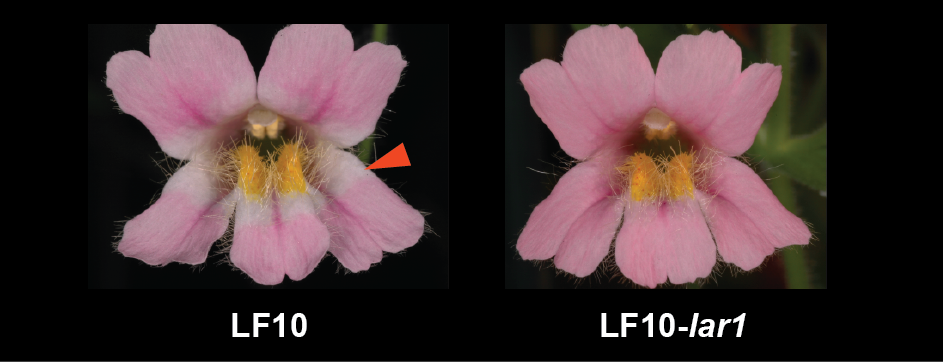 |
| LF10-roi1 | LF10-roi1 | M. lewisii | flower, Anthocyanin pigmentation | A near-isogenic line (NIL) in the LF10 background, with the ROI1 locus substituted by the M. cardinalis CE10 version. ROI1 encodes an R3-MYB that represses anthocyanin biosynthesis.
Reference: Reference: Yuan et al. 2013. Genetics 194: 255-263. | 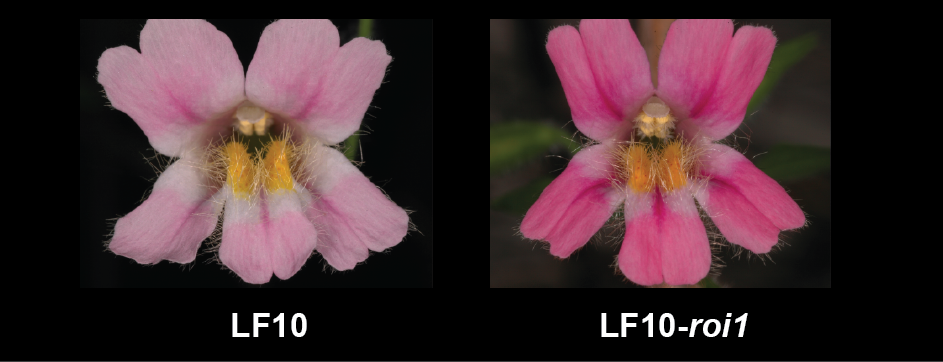 |
| ML10082 | guideless | M. lewisii | flower, Carotenoid pigmentation, trichome | Mutation in a Mixta-like (Subgroup 9) R2R3-MYB gene. Trichomes on the petal are very short and stunted. Conical cells on the inner epidermis become flatter. Carotenoids in the nectar guides are much reduced.
Reference: Yuan et al. 2013. Genetics 194: 523-528. | 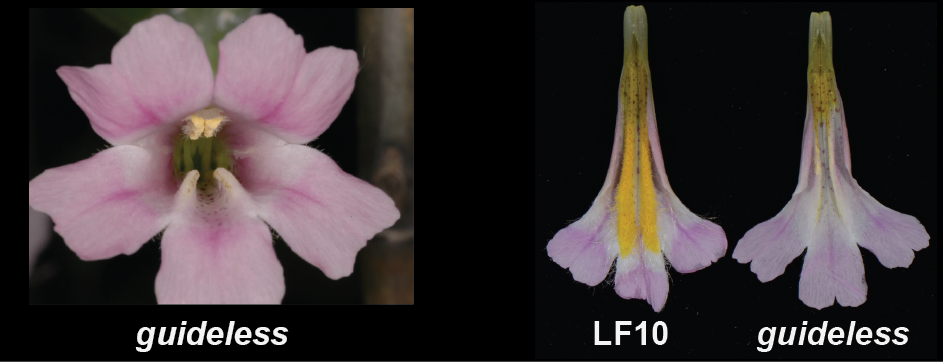 |
| ML10346 | rcp1-1 | M. lewisii | flower, Carotenoid pigmentation | Mutation in a subgroup 21 R2R3-MYB gene. Carotenoid content in the nectar guides is substantially reduced compared to the wild-type.
Reference: Sagawa et al. 2016. New Phytologist. 209: 1049-1057. | 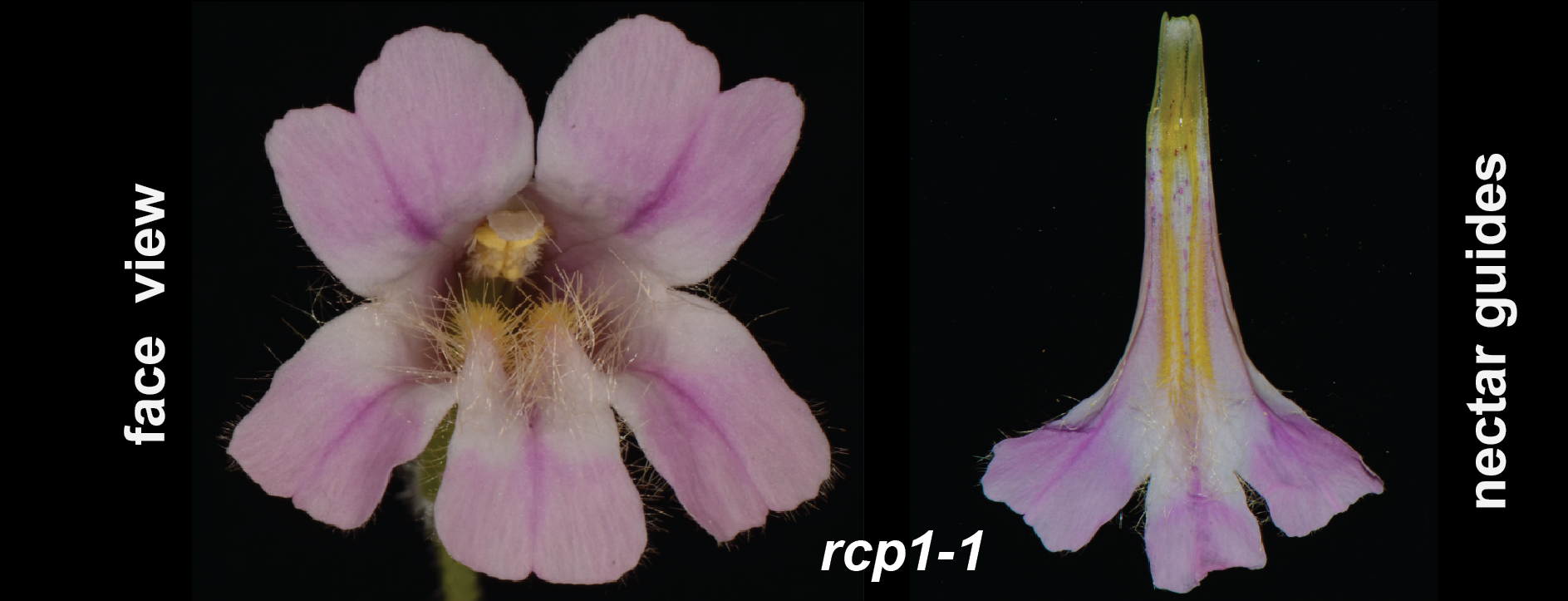 |
| ML10422 | fns-1 | M. lewisii | flower, Anthocyanin pigmentation | Mutation in the Flavone Synthase (FNS) gene, causing an over-dominance in flower color intensity.
Reference: LaFountain et al. 2017. G3. 7: 3947-3954 | 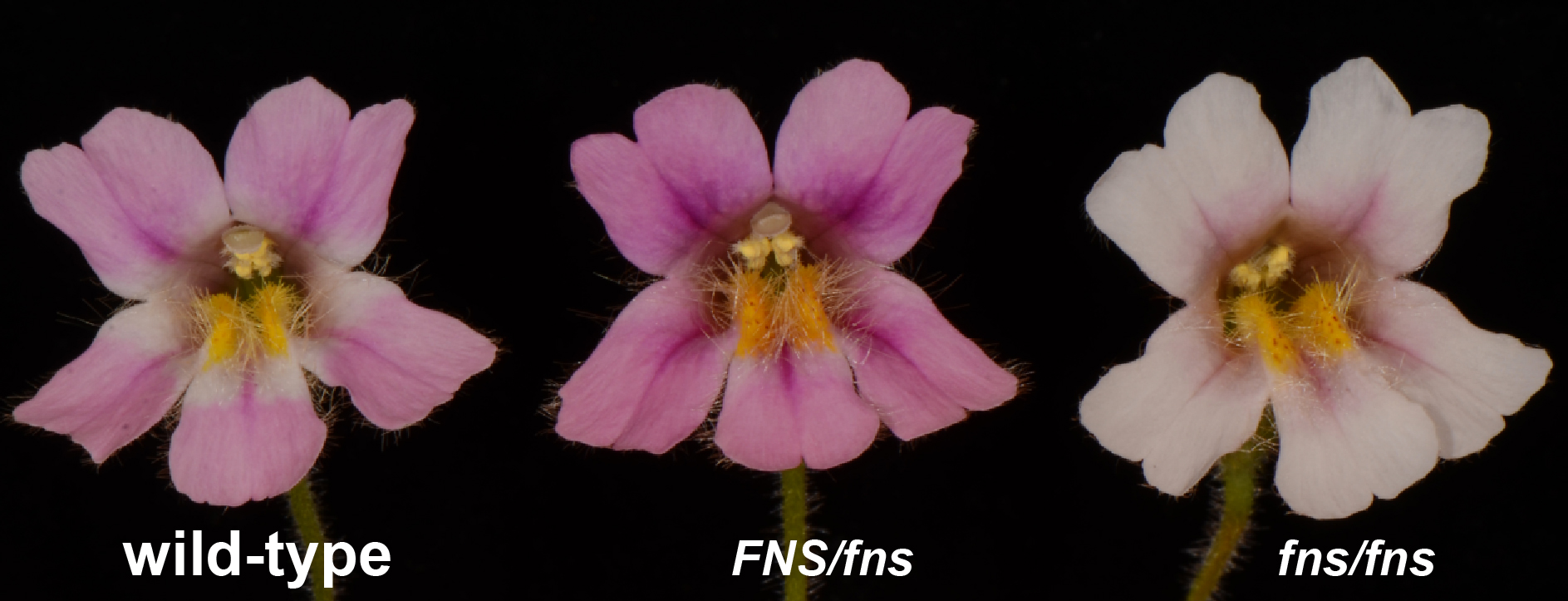 |
| ML10863 | pelan/boo3 | M. lewisii | flower, Anthocyanin pigmentation | Mutation in a subgroup 6 R2R3-MYB gene. Anthocyanin production is abolished in petal lobes, but not affected in other tissues, including the nectar guides.
Reference: Yuan et al. 2014. New Phytologist. 204: 1013–1027. | 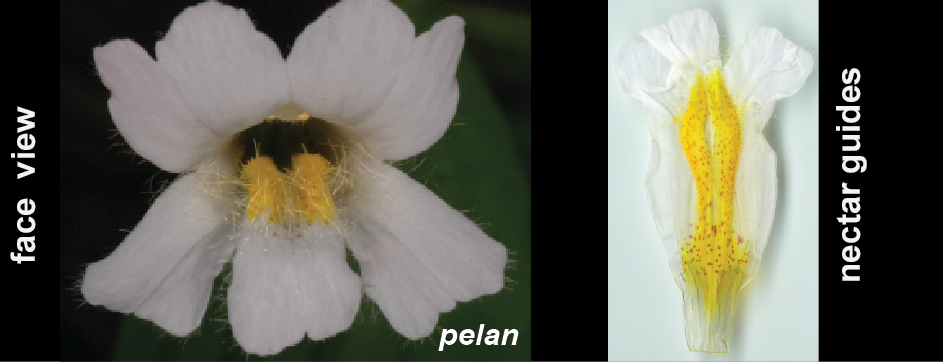 |
| ML11431 | wd40a-1/boo5 | M. lewisii | flower, Anthocyanin pigmentation | Mutation in the WD40a gene, encoding an indispensable component of the anthocyanin-activating MYB-bHLH-WD40 complex. Anthocyanin production is abolished in all tissue types.
Reference: Yuan et al. 2014. New Phytologist. 204: 1013–1027. | 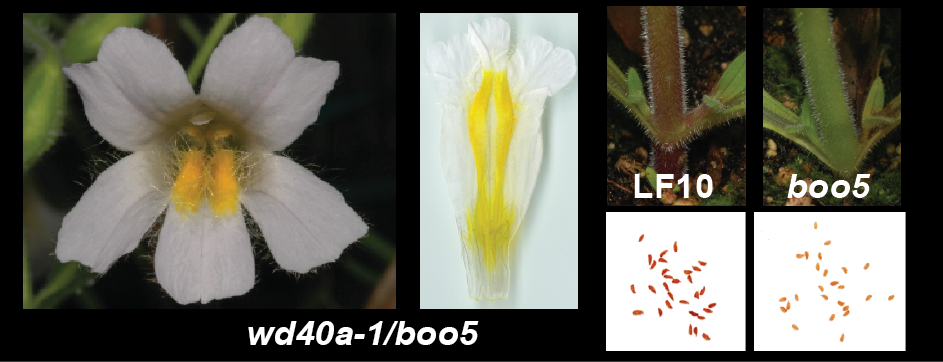 |
| ML11689 | corolla lobeless | M. lewisii | flower, Corolla limb | The distal portion of lateral organs is less developed, most conspicuously the corolla lobes. | 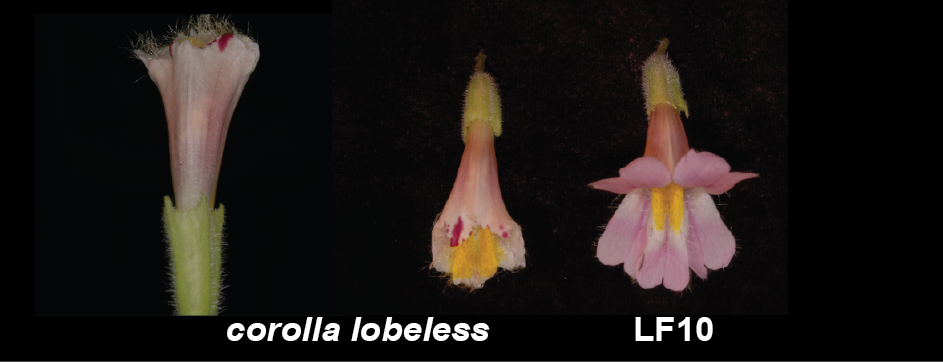 |
| ML12255 | cheekless1 | M. lewisii | flower, whole plant | Cotyledons are fused. Some leaf pairs are fused too. Flowers have reduced number of petals, usually 3, sometimes less, but the ventral petal is always present. | 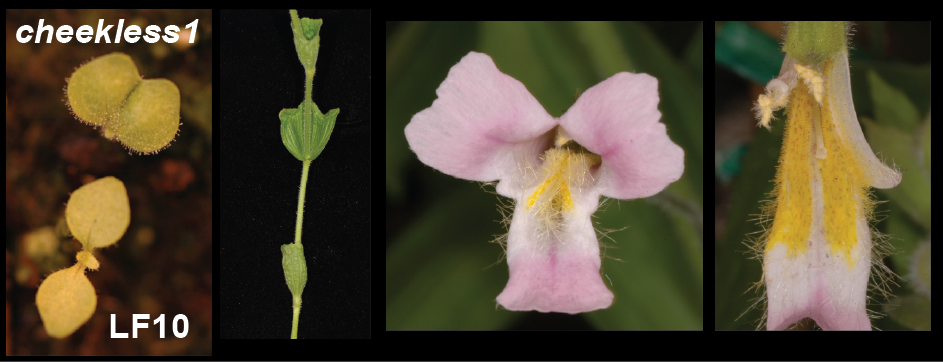 |
| ML12267 | chsa-1/boo12 | M. lewisii | flower, Anthocyanin pigmentation | A mutation in the CHSa gene that abolishes anthocyanin production in all tissue types throughout the plant. A strong chsa allele. | 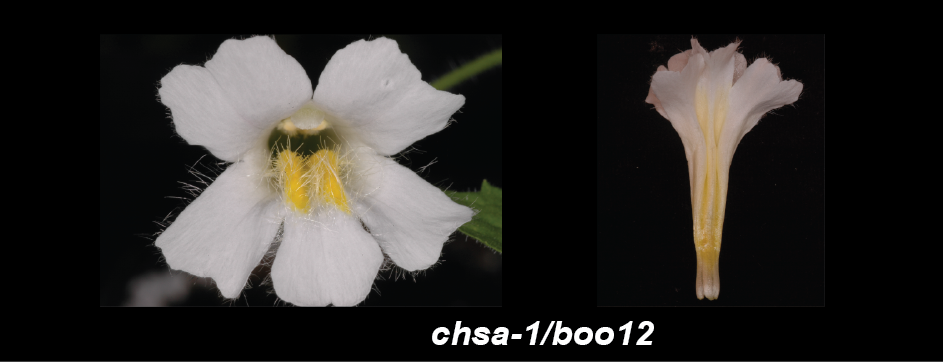 |
| ML12314 | dfr-1 | M. lewisii | flower, Anthocyanin pigmentation | A mutation in the DFR gene that abolishes anthocyanin production in all tissue types throughout the plant. A strong dfr allele. | 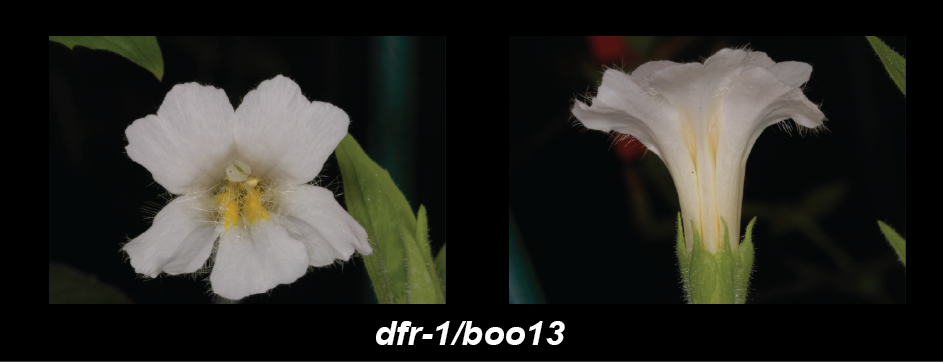 |
| ML12378 | cheekless2 | M. lewisii | whole plant, flower | Allelic to cheekless1, with stronger phenotypes. Cotyledons are fused. Some leaf pairs are fused too. Most flowers have a single petal (the ventral petal), sometimes more. | 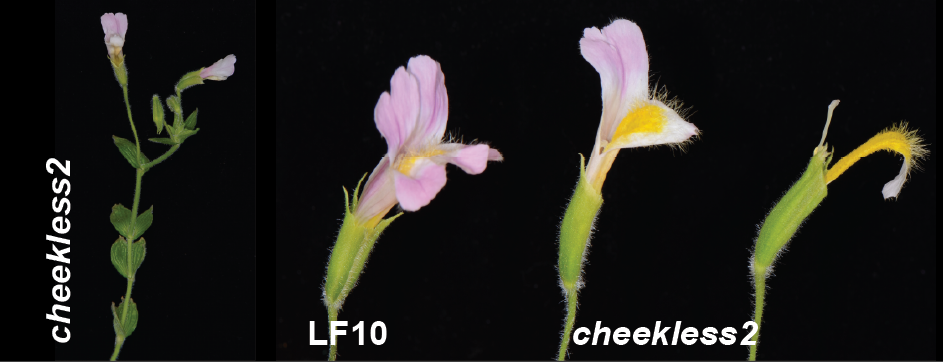 |
| ML12450 | anbhlh1-1/boo14 | M. lewisii | flower, Anthocyanin pigmentation | Mutation in the ANbHLH1 gene, encoding an indispensable component of the anthocyanin-activating MYB-bHLH-WD40 complex. Anthocyanin production is abolished in the petal lobe and stem base and much reduced in the nectar guides, but not affected in other tissues.
Reference: Yuan et al. 2014. New Phytologist. 204: 1013–1027. | 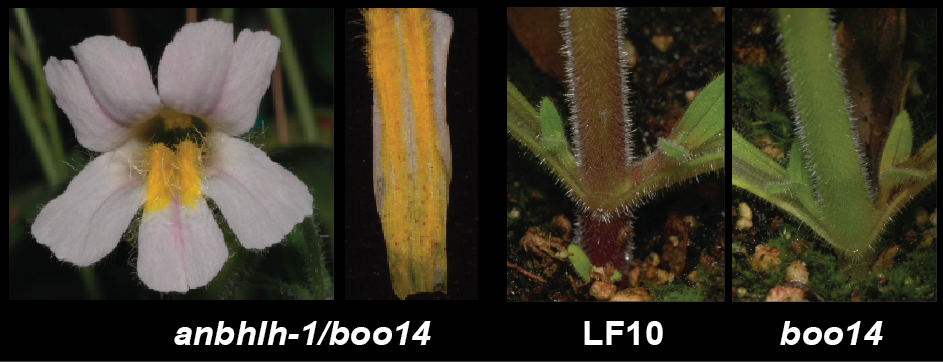 |
| ML14257 | act1-D | M. lewisii | whole plant, Corolla tube | A semi-dominant mutation in the ACTIN1 gene, causing reduced width of lateral organs but no effect on length.
Reference: Ding et al. 2017. New Phytologist. 213: 1936-1944. | 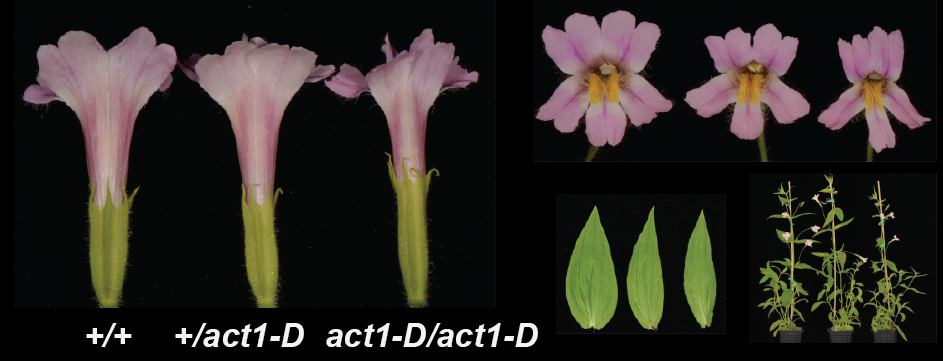 |
| ML20169 | yaoming | M. lewisii | whole plant | A dominant mutant with much taller stem | 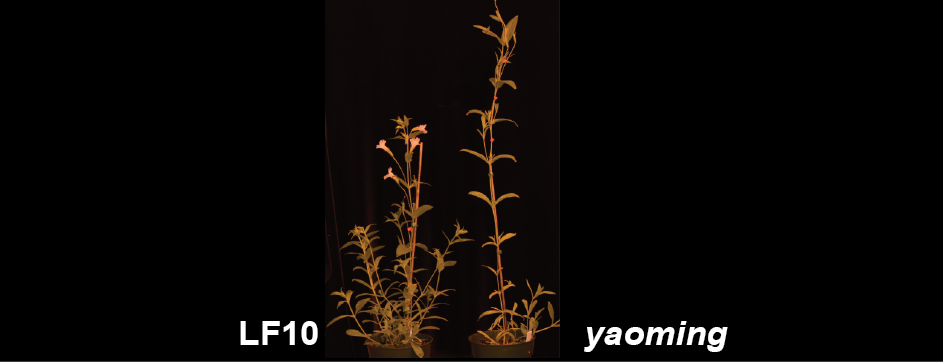 |
| ML20400 | short tube1 | M. lewisii | flower, Corolla tube | Shorter corolla tube, but normal corolla lobes. | 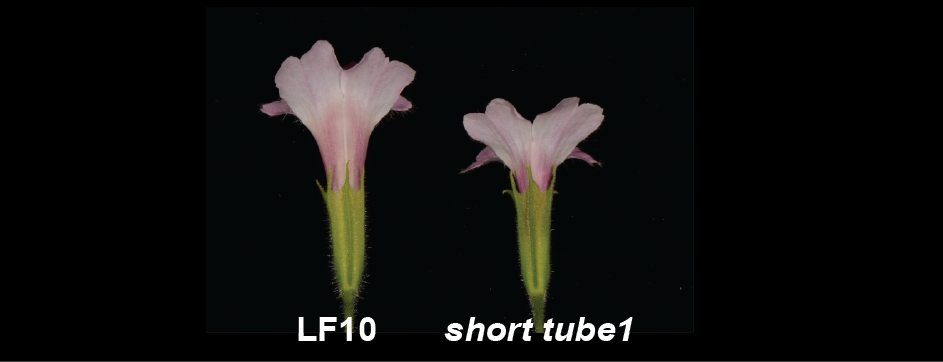 |
| MV00025 | mvrcp2-1 | M. verbenaceus | flower | Mutation in RCP2, encoding a tetratricopeptide repeat (TPR) protein that regulates carotenoid biosynthesis and chromoplast development. Carotenoid pigments in the corolla are almost entirely gone, giving the flower a purple hue.
Reference: Stanley et al. 2020. Plant Cell 32: 1536–1555. | 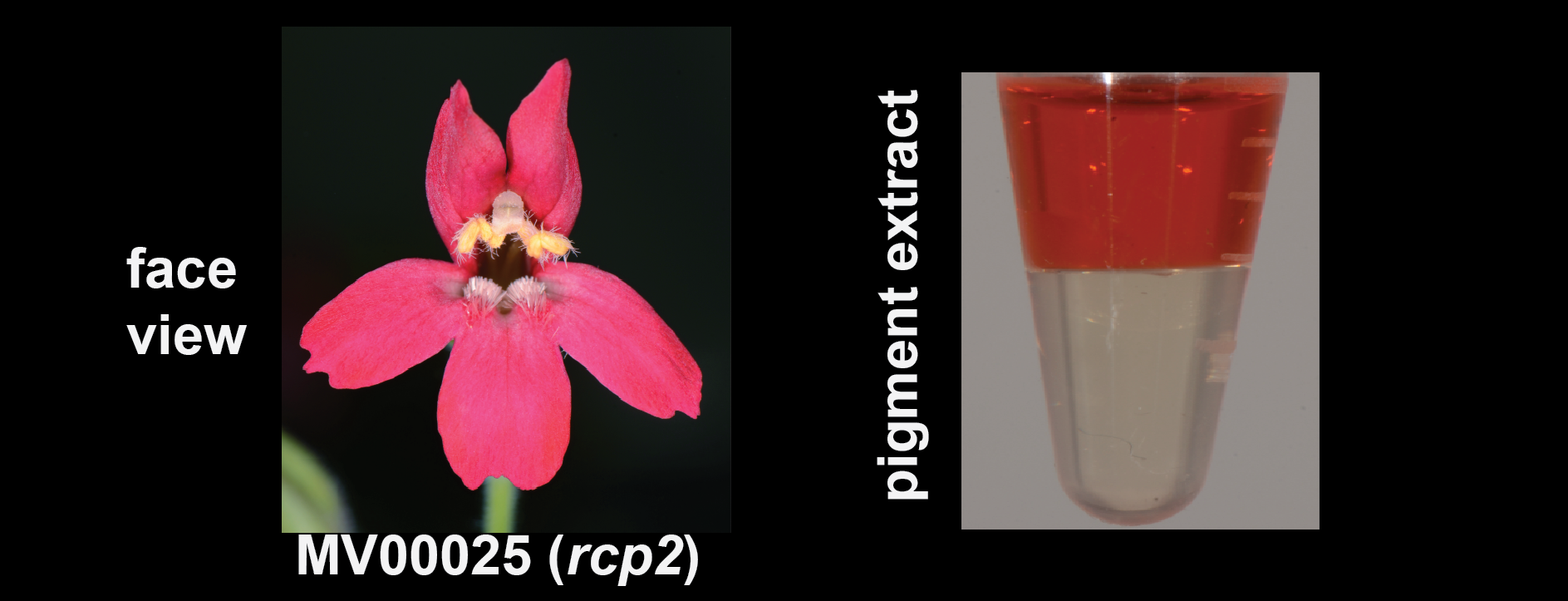 |
| McCI | McCI | M. cardinalis | flower, Anthocyanin pigmentation | A natural mutant on the southern end of the species range (Cedros Island, Baja California, Mexico) with the PELAN gene down-regulated, most likely due to cis-element mutation(s) at PELAN.
Reference: Yuan et al. 2014. New Phytologist. 204: 1013–1027. | 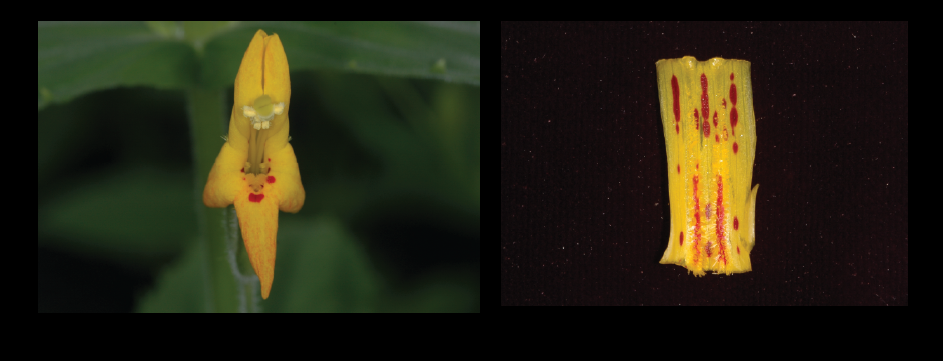 |
| McSM | McSM | M. cardinalis | flower, Anthocyanin pigmentation | A natural mutant on the northern end of the species range (Siskiyou Mountains, OR, USA), with the PELAN gene deleted from the genome.
Reference: Yuan et al. 2014. New Phytologist. 204: 1013–1027. | |
| Mpar | Mpar | M. parishii | wild-type | wild-type (reference strain with genome sequenced) | 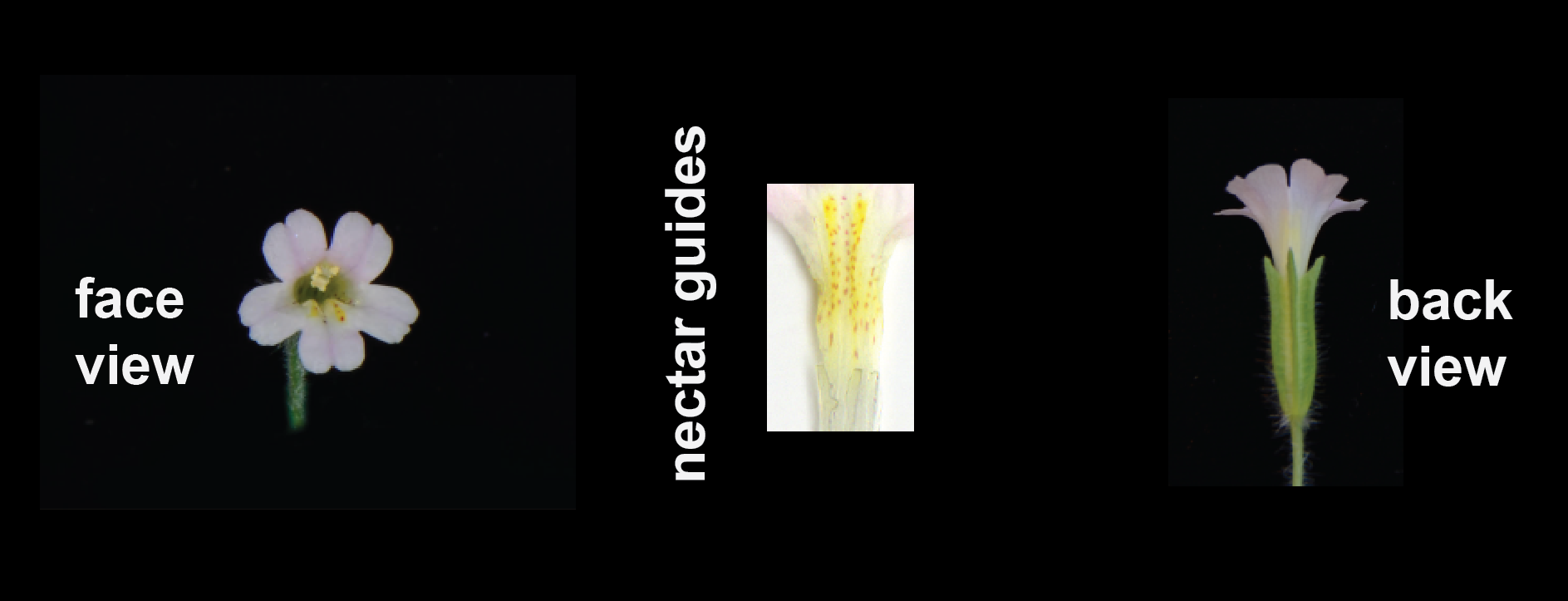 |
| MvBL | MvBL | M. verbenaceus | wild-type | An inbred line generated from a striped individual in the West Fork population (Oak Creek Canyon, Sedona, Arizona); Reference strain with genome sequenced. |  |
| MvNB | MvNB | M. verbenaceus | wild-type | An inbred line generated from a non-striped individual in the West Fork population (Oak Creek Canyon, Sedona, Arizona) | 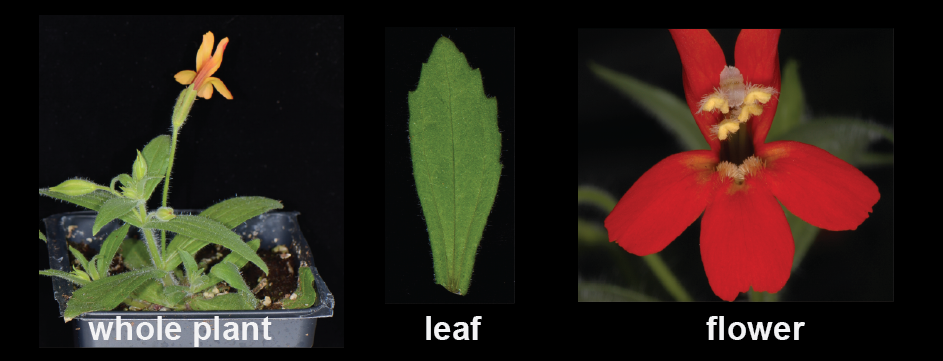 |